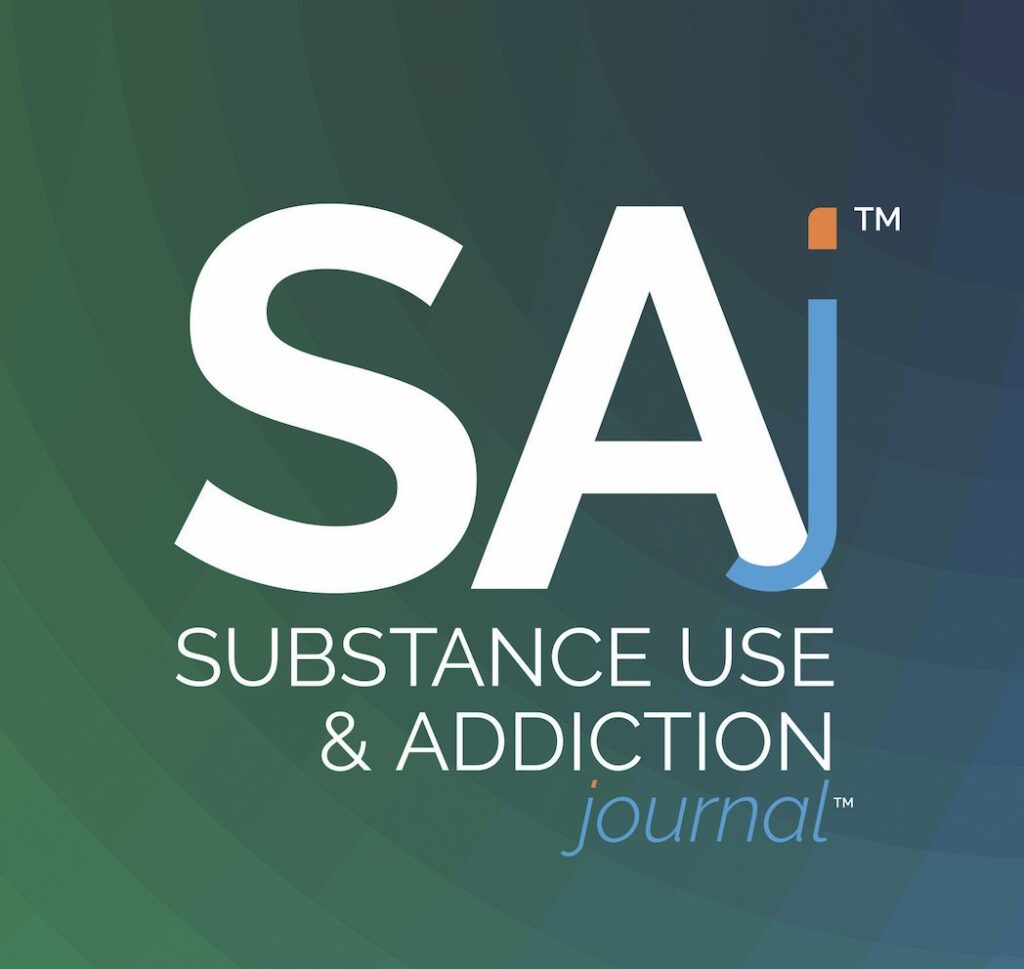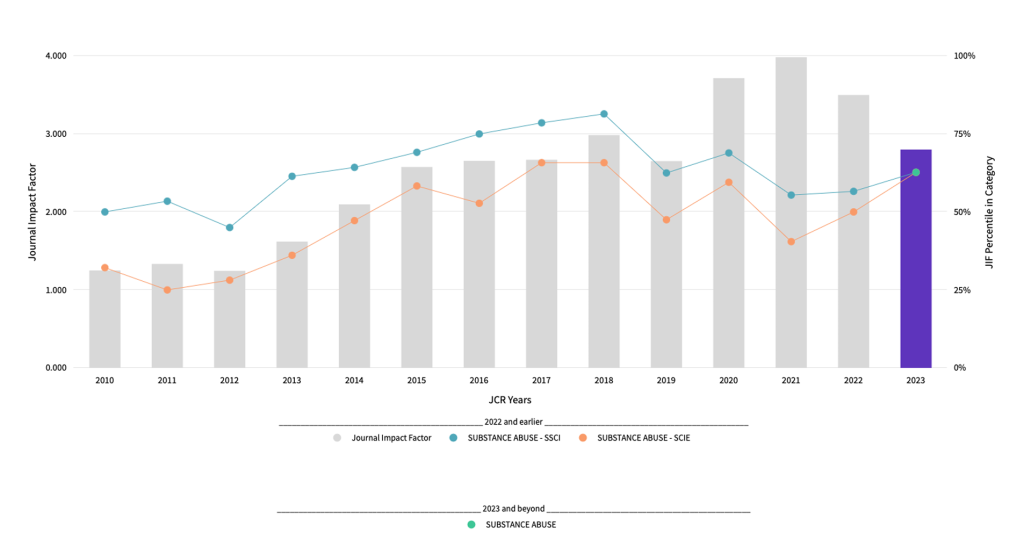
Substance Use & Addiction Journal (SAj) prioritizes transparency in publication, including sharing our current metrics.
In June, the 2024 Journal Citation Reports (JCR) were announced by Clarivate, which includes journal impact factors. Impact factors are assigned to each journal based on how often a journal’s published work is cited within the preceding two years. This year, our impact factor was split between two titles: our old journal (Substance Abuse) and new journal (Substance Use & Addiction Journal) titles. In short, citations included in this calculation were only of articles published in Substance Use & Addiction Journal that were cited in other articles in 2024 (which was 74, remarkably). This reduced the overall SAj impact factor to 2.4. We anticipate an increase in this metric after the SAj impact factor is consolidated under one title.
Our editorial efficiency metrics continue to be strong with continued improvement. As of August 13, 2025, over the 12 last months we have received 418 articles to consider (increase over the last month), rendering 481 decisions (increase, accounting for re-reviews of manuscripts), with mean time (days) from submission first or final decision at 38.2 (decrease) and 54.6 (decrease), respectively. Our accept ratio is 30.7, the lowest value in several years.
The SAj Editorial Team is eager to consider impactful manuscripts in the field of substance use for publication in SAj. As a peer-reviewed publication, we are also happy to receive volunteers who are interested in peer reviewing manuscripts. If you have any questions about either of these processes, please reach out to saj@amersa.org.
For more updates, please follow SAj on Bluesky, X, and LinkedIn. Click here to sign up for SAj Table of Contents alerts.
Adam J. Gordon, MD MPH FASAM DFASAM, Editor-in-Chief, SAj


